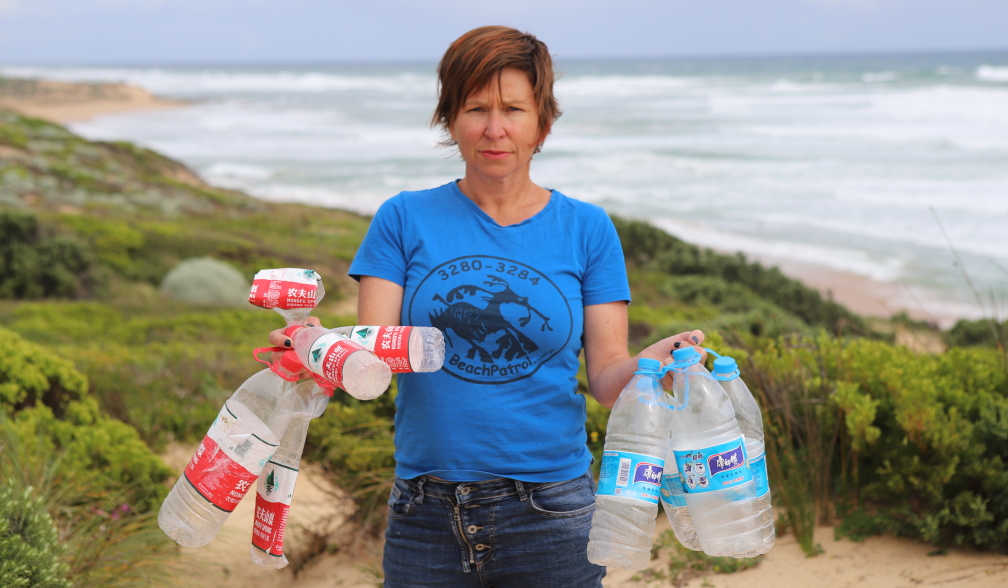Litter dumped from ships is creating catastrophic pollution levels on Australian shores
- Written by Diane Falzon

With thousands of foreign bottles and other overseas debris washing up on Australian shorelines, a national volunteer community beach cleaning group, Beach Patrol, is urging the Federal Government to act on ships dumping litter.
Colleen Hughson, Beach Patrol Leader, campaigner, and educator in ocean plastics says, “The amount of litter discarded from international ships is significant and persistent. We recently completed citizen science research because we were finding that the popular mantra in relation to ocean plastics was that ’80 per cent of what washes up on Australian beaches is land-based rubbish (from stormwater and rivers)’, did not apply to our local community in southwest Victoria.”
“The other popular misconception is that ‘rubbish floats from Asia to wash up on our beaches.’ The Beach Patrol team did not believe either of these statements were true and we were determined in proving it otherwise.
“So Beach Patrol took a detailed look at what was washing up. We documented anything that still had identifying features such as branding and logos. We looked at drink bottles, food packaging, and bottle lids. What we found was the majority of what we collect is not from land-based sources, but from boats and ships. And while we do collect mostly Asian branded bottles, this isn’t because ocean currents floated them here, it's because they’ve been discarded from passing ships.”
Beach Patrol recently commissioned a report with an independent environmental consultant to verify its data. The report confirmed that shipping litter is contributing heavily to ocean pollution, and that shipping debris has been a high-level source of litter along our coastline for many years. The data also shows that there has been a marked increase in shipping debris washing up since the start of 2020.
Colleen explains, “We want the public to know about this form of coastal litter so that they can help us monitor it, and just as importantly, help apply pressure on our government to act.”
“We started the hashtag #BottlesOverboard mid-year, with the aim of connecting to other people who were also finding shipping litter on their beaches.
“Our Bottles Overboard hashtag has been taken up by marine debris groups around the world. Via the hashtag, we can see that groups in other Australian states and overseas are finding exactly the same branded water bottles as we do. The conversation has started about ships being a major source of litter on beaches, and there is a growing concern amongst communities worldwide. They want action from the custodian of the prevention of pollution at sea by ships, the International Maritime Organisation, which is responsible for protecting our marine environment.
“It is important to know the source of all the marine debris washing up on our remote beaches so we can take the correct measures to address it. We know from our data that brands Nongfu and Master Kong make up 60 per cent of all branded bottles (including Australian brands) collected in our region and that the condition of 59 per cent of the drink bottles found is new. Overall, 82 per cent of bottles and packaging collected came from Asia, while only 13 per cent of brands were identified as available in Oceania, which includes Australia and New Zealand.
“It is difficult to monitor what ships are doing out in the ocean, but by making changes to how shipping waste is treated and disposed of in our ports, we believe that this can only help to reduce the amount of illegal dumping of shipping waste at sea.”
Colleen concludes, “Australia’s waste policies focus on reducing marine debris by tackling single-use plastics, and land-based sources. While these initiatives are much needed, they are only part of the picture.
“Australia has no hope of reducing marine debris if it ignores one of the biggest contributors to ocean plastic litter - merchant ships.”





















